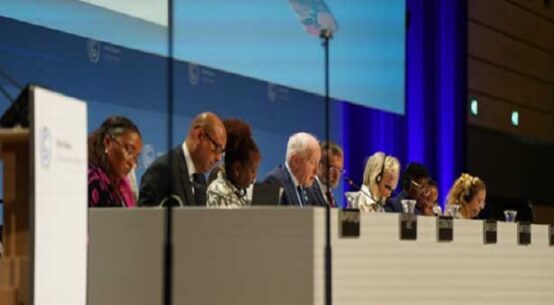
The two devastating military conflicts—Russia vs Ukraine and Israel vs Hamas—have exposed once again the stark reality that the United Nations, created 79 years ago to maintain international peace and security, has failed in its political mission – while its credibility is at stake.
Russia is accused of violating the UN charter by invading a sovereign nation state and causing hundreds and thousands of deaths over two years — with no signs of a peaceful settlement.
The accusations against Israel include war crimes, genocide, ethnic cleansing and the disproportionate killings of over 30,000 civilians, mostly women and children in Gaza—in retaliation for 1,200 killings by Hamas last October.
Secretary-General Antonio Guterres, who has taken a rightful stand on the two conflicts, has been criticized by both countries, with Israel calling for his resignation while ignoring his request for a meeting or a phone call with Israeli Prime Minister Benjamin Netanyahu.
The Israeli government also continues to remain defiant—and rejects the demands of the world body—while it is shielded by its longstanding political, economic and military ally: the United States, one of the permanent members of the UNSC.
According to a report in the New York Times last week, the US has used its veto more than 40 times— to be precise, 48 times by some estimates– to shield Israel since the creation of the UN in 1945.
Meanwhile, China and Russia have also used their vetoes to protect their allies, including the Assad regime in Syria and the military regime in Myanmar, bringing the UNSC to a paralytic standstill.
With Russia and Israel continue to be defiant, one lingering question remains: has the UN and UNSC outlived their usefulness?
Norman Solomon, executive director, Institute for Public Accuracy and national director, RootsAction.org, told IPS the repeated U.S. vetoes of Security Council resolutions for a ceasefire in Gaza reflect a renewed moral collapse in Washington, which supplies Israel with 80 percent of its weapons imports.
“The vetoes are unconscionable moves to sustain the mass murder of Palestinian people by an Israeli government committing large-scale war crimes on a daily basis,” he said.
The leadership of the United Nations and key UN agencies have released a steady stream of data and condemnations, correctly spotlighting the murderous ongoing actions of the Israeli military in Gaza, he pointed out.
“But the U.S. government, continuing to aid and abet those actions, has purposefully immobilized the Security Council while the massive humanitarian disaster continues with U.S. arms and U.S. “diplomatic” backing,” said Solomon, author of “War Made Invisible: How America Hides the Human Toll of Its Military Machine.”
Stephen Zunes, Professor of Politics at the University of San Francisco, who has written extensively on the politics of the UNSC, told IPS over half of all U.S. vetoes have been used to shield Israel from criticism. This, in spite of the fact that each of these were under Chapter VI, not Chapter VII, so the Security Council would not have been able to enforce them anyway
“Though Russia and China have not used their veto as often, they have similarly abused this power in protecting such allies as Syria and Myanmar which–like Israel–have engaged in serious war crimes and other violations of international law.”
“Having the United Nations repeatedly blocked from being able to enforce its Charter is incredibly frustrating for those of us who believe in a rules-based international order,” he argued.
At the same time, he said, forcing leaders like Biden and Putin to block otherwise-unanimous resolutions underscores their isolation in the international community, making it clear to the world that they are effectively accomplices in illegal conduct.
“This harms their credibility internationally and therefore weakens their diplomatic influence. As a result, even unsuccessful resolutions have the potential of creating greater pressure, both internationally and domestically, for them to change their policies and eventually allow the United Nations to do its job,” declared Zunes.
Solomon said the UN’s long-standing structural inequities and emerging cold-war hostilities have pushed it into an unproductive corner of geopolitical stalemates.
“The outsized power of the Security Council and its vulnerability to vetoes from its permanent members have exerted dual leverage to marginalize most of the world on matters of war, peace and human rights”.
While the General Assembly, he argued, certainly includes representatives of many governments with hypocritical if not dirty or even bloody hands, those nearly 200 nations at least indirectly reflect the world as a whole.
Time after time, he said, the General Assembly has taken votes that justly and overwhelmingly condemned actions of the powerful. Yet to the extent that a locus of power exists at the UN, it is the Security Council that largely wields it. And the Security Council’s capacity to push for peace and human rights is undermined by the power of a single government to block such a push.
“The United States accounts for just 4 percent of the world’s population, and for Russia the figure is less than 2 percent. Even for China, the number is no more than 17 percent. Yet the governments of those countries routinely cast looming shadows over the bright promises of the United Nations,” declared Solomon.


